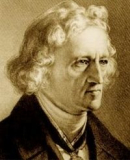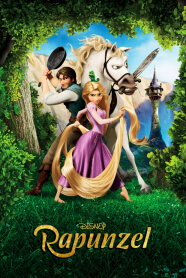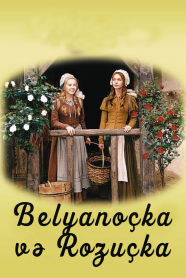
Jacob Grimm
Jacob Grimm
Philologist, jurist, mythologist
The Brothers Grimm (die Brüder Grimm or die Gebrüder Grimm), Jacob and Wilhelm, were German academics, philologists, cultural researchers, lexicographers and authors who together collected and published folklore during the 19th century. They were among the first and best-known collectors of folk tales, and popularized traditional oral tale types such as "Cinderella" ("Aschenputtel"), "The Frog Prince" ("Der Froschkönig"), "The Goose-Girl" ("Die Gänsemagd"), "Hansel and Gretel" ("Hänsel und Gretel"), "Rapunzel", "Rumpelstiltskin" ("Rumpelstilzchen"), "Sleeping Beauty" ("Dornröschen"), and "Snow White" ("Schneewittchen"). Their classic collection Children's and Household Tales (Kinder- und Hausmärchen), was published in two volumes, in 1812 and in 1815. The brothers were born in the town of Hanau in Hesse-Cassel (now Germany) and spent most of their childhood in the nearby town of Steinau. Their father's death in 1796 impoverished the family and affected the brothers for many years after. They attended the University of Marburg where they began a lifelong dedication to researching the early history of German language and literature, including German folktales. The rise of Romanticism during the 18th century had revived interest in traditional folk stories, which to the Grimms and their colleagues represented a pure form of national literature and culture. The Brothers Grimm established a methodology for collecting and recording folk stories that became the basis for folklore studies. Between the first edition of 1812-15, and the seventh and final edition of 1857, they revised their collection many times, so that it grew from 156 stories to more than 200. In addition to collecting and editing folk tales, the brothers compiled German legends. Individually, they published a large body of linguistic and literary scholarship. Together, in 1838 they began work on a massive historical German dictionary (Deutsches Wörterbuch), which, in their lifetimes, they completed only as far as the word Frucht, 'fruit'. Many of Grimms' folk tales have enjoyed enduring popularity. The tales are available in more than 100 languages and have been adapted by filmmakers including Lotte Reiniger and Walt Disney, with films such as Snow White and the Seven Dwarfs and Sleeping Beauty. During the 1930s and 40s, the tales were used as propaganda by the Third Reich; later in the 20th century psychologists such as Bruno Bettelheim reaffirmed the value of the work, in spite of the cruelty and violence in original versions of some of the tales, which the Grimms eventually sanitized.
For more information press link below:
https://en.wikipedia.org/wiki/Brothers_Grimm


